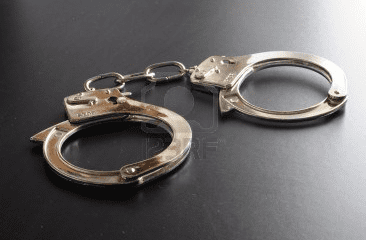I wonder if the judge had any reason to suspect that A) Charlie Sheen had firearms and B) he was likely to use them in an illegal manner (other than the fact that he has a massive cocaine habit). Or does a LA restraining order generally ban firearms and ammo and allow cops to search your home? Looks that way. Make the jump to read the relevant statute . . .
(a) A person subject to a temporary restraining order or injunction issued pursuant to Section 527.6, 527.8, or 527.85 or subject to a restraining order issued pursuant to Section 136.2 of the Penal Code, or Section 15657.03 of the Welfare and Institutions Code, shall relinquish the firearm pursuant to this section
(b) Upon the issuance of a protective order against a person pursuant to subdivision (a), the court shall order that person to
relinquish any firearm in that person’s immediate possession or control, or subject to that person’s immediate possession or control, within 24 hours of being served with the order, either by surrendering the firearm to the control of local law enforcement officials, or by selling the firearm to a licensed gun dealer, as specified in Section 12071 of the Penal Code.
A person ordered to relinquish any firearm pursuant to this subdivision shall file with the court a receipt showing the firearm was surrendered to the local law enforcement agency or sold to a licensed gun dealer within 48 hours after receiving the order. In the event that it is necessary to continue the date of any hearing due to a request for a relinquishment order pursuant to this section, the court shall ensure that all applicable protective orders described in Section 6218 of the Family Code remain in effect or bifurcate the issues and grant the permanent restraining order pending the date of the hearing.
(c) A local law enforcement agency may charge the person subject to the order or injunction a fee for the storage of any firearm relinquished pursuant to this section. The fee shall not exceed the actual cost incurred by the local law enforcement agency for the storage of the firearm. For purposes of this subdivision, “actual cost” means expenses directly related to taking possession of a firearm, storing the firearm, and surrendering possession of the firearm to a licensed dealer as defined in Section 12071 of the Penal Code or to the person relinquishing the firearm.
(d) The restraining order requiring a person to relinquish a firearm pursuant to subdivision (b) shall state on its face that the respondent is prohibited from owning, possessing, purchasing, or receiving a firearm while the protective order is in effect and that the firearm shall be relinquished to the local law enforcement agency for that jurisdiction or sold to a licensed gun dealer, and that proof of surrender or sale shall be filed with the court within a specified period of receipt of the order. The order shall also state on its face the expiration date for relinquishment. Nothing in this section shall limit a respondent’s right under existing law to petition the court at a later date for modification of the order.
(e) The restraining order requiring a person to relinquish a firearm pursuant to subdivision (b) shall prohibit the person from possessing or controlling any firearm for the duration of the order. At the expiration of the order, the local law enforcement agency shall return possession of any surrendered firearm to the respondent, within five days after the expiration of the relinquishment order, unless the local law enforcement agency determines that (1) the firearm has been stolen, (2) the respondent is prohibited from possessing a firearm because the respondent is in any prohibited class for the possession of firearms, as defined in Sections 12021 and 12021.1 of the Penal Code and Sections 8100 and 8103 of the Welfare and Institutions Code, or (3) another successive restraining order is issued against the respondent under this section.
If the local law enforcement agency determines that the respondent is the legal owner of any firearm deposited with the local law enforcement agency and is prohibited from possessing any firearm, the respondent shall be entitled to sell or transfer the firearm to a licensed dealer as defined in Section 12071 of the Penal Code. If the firearm has been stolen, the firearm shall be restored to the lawful owner upon his or her identification of the firearm and proof of ownership.
(f) The court may, as part of the relinquishment order, grant an exemption from the relinquishment requirements of this section for a particular firearm if the respondent can show that a particular firearm is necessary as a condition of continued employment and that the current employer is unable to reassign the respondent to another position where a firearm is unnecessary. If an exemption is granted pursuant to this subdivision, the order shall provide that the firearm shall be in the physical possession of the respondent only during scheduled work hours and during travel to and from his or her place of employment.
In any case involving a peace officer who as a condition of employment and whose personal safety depends on the ability to carry a firearm, a court may allow the peace officer to continue to carry a firearm, either on duty or off duty, if the court finds by a preponderance of the evidence that the officer does not pose a threat of harm. Prior to making this finding, the court shall require a mandatory psychological evaluation of the peace officer and may require the peace officer to enter into counseling or other remedial treatment program to deal with any propensity for domestic
violence.
(g) During the period of the relinquishment order, a respondent is entitled to make one sale of all firearms that are in the possession of a local law enforcement agency pursuant to this section. A licensed gun dealer, who presents a local law enforcement agency with
a bill of sale indicating that all firearms owned by the respondent that are in the possession of the local law enforcement agency have been sold by the respondent to the licensed gun dealer, shall be given possession of those firearms, at the location where a respondent’s firearms are stored, within five days of presenting the local law enforcement agency with a bill of sale.




Good ole Charlie threatens to cut his wife’s head off which leads to her getting a restraining order. Under the order, he is not allowed to have firearms (because they are weapons and can be used to hurt someone?) Yet, there is no mention of the police removing all knives from Charlie’s house, which of course, are the weapons needed to cut his wife’s head off. hmmmmmmm
The obvious answer: Short of incarcerating them, there is no effective way to separate people from household cutlery. Guns are somewhat harder to get, thankfully. I’m sure if the family and the court had their way, Charlie would not be allowed anything more lethal than a spork.
However, it is extremely difficult to get people institutionalized, and virtually impossible when they have unlimited funds and a circle of sycophantic enablers. Charlie’s best hope at this point is to run out of money and “friends” before he ends up dead or in jail.
Although most people would rather be murdered with a handgun than with a spork.
You must not live in lil rhody Magoo, because it’s easier to buy a gun here than silverware.LOL
Rabbi, Naturally you would object to anyone being disarmed. The fact that Charley is a violent, unstable man who would make the cut on just about anyone’s disqualified list, matters not to you.
Why do you take it personally? Why don’t you applaud the initiative, which is after all in YOUR best interest? It may very well have prevented crazy Charley from doing a murder – suicide with a GUN which would then be used by the gun controllers to try to take away YOUR rights.
Charlie’s troubles with firearms go back 20 years. In 1990 Kelly Preston broke off their engagement when he *accidentally* shot her in the arm with a handgun.
There are lots of firearms in Hollywood, especially handguns. Actors handle them frequently on the set and become fascinated with them, naturally. They may also tend to confuse themselves with the characters they play.
As fascinating as it is to watch the slo-mo train wreck that is Charlie Sheen’s life, I’m really wondering, where’s his family in all this? Not his “godesses.” Not his ex-wives. Nope. His blood-relatives: Martin Sheen and Emilio Esteves. Charlie’s dad has had a very public history of social and political activism – of the far-Left persuasion. Wouldn’t you think he could spare a minute or two away from the protests to, um, I dunno – stage an intervention for his son?
Interventions have been tried and failed. And tried and failed. About the only thing Martin Sheen can do now is try to get Charlie 5150’ed.
And yes, Charlie Sheen has a history of guns, in CA gun transactions ARE tracked (private party sales are supposed to go through a dealer, and there is NO “gun show loophole” in California), and with the current restraining order, he is legally required to have surrendered all firearms. Getting a warrant for a firearms search is a slam-dunk in this case.
Oh, for those outside California.
“5150”: California slang for an involuntary psychiatric hold, AKA giving him a nice jacket with buckles in the back and a comfortably padded room until he gets his life straightened out a bit.
It worked for Britney Spears.
Given that it is a FREQUENT tactic to pursue restraining orders during divorce cases, many of which are based on false accusations, in order to put pressure on the soon-to-be-ex-spouse to settle up or pay up, this appears to be an easy way to screw someone over.
“I want the house, the car, the boat, and – oh dear, did you just threaten me – say goodbye to your precious little gun collection!”
The gestapo — oops! — the police found nothing but one antique fiirearm on the premises, according to the report I read. I’m sure it won’t be long until one of the cops puts it up for sale on ebay.
You were right the first time Ralph, the GESTAPO does run that foolish state and the mindless puppets just follow their lead.
Comments are closed.